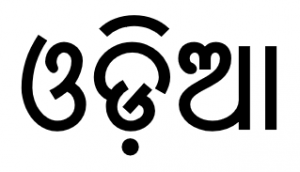Language/Odia/Vocabulary/Describing-Relationships
| ◀️ Family Members — Previous Lesson | Next Lesson — Basic Adjectives ▶️ |
Introduction[edit | edit source]
In this lesson, we will learn how to describe relationships between people in Odia. Understanding how to talk about family and relationships is essential for effective communication and building connections with others. Whether you are introducing someone to your family or describing the bond between two individuals, this lesson will equip you with the necessary vocabulary and phrases to express yourself in Odia.
Describing relationships in Odia involves using specific words and phrases to convey the nature of the relationship between individuals. We will explore various family members and their roles, as well as learn how to describe different types of relationships. Through examples and practice exercises, you will gain a thorough understanding of how to express relationships in Odia.
Cultural Insights[edit | edit source]
In Odia culture, family plays a significant role and holds great importance. The Odia society is traditionally structured around strong family ties and close-knit relationships. Family members are highly valued and respected, and their opinions and advice are often sought in important matters.
Odia families are known for their warmth and hospitality. Family gatherings and celebrations are common, providing opportunities for strengthening relationships and maintaining connections. Elders are given utmost respect and are often seen as the pillars of the family.
Historically, Odisha (formerly known as Orissa) has been influenced by various dynasties and empires, including the Mauryas, Guptas, and Gajapatis. These different rulers have left their mark on the culture and traditions of the region, shaping the way relationships are perceived and celebrated in Odia society.
Vocabulary[edit | edit source]
Family Members[edit | edit source]
To describe relationships accurately, it is important to learn the words for different family members in Odia. Here are some common family members and their Odia translations:
| Odia | Pronunciation | English Translation |
|---|---|---|
| ପିତା | pita | father |
| ମାତା | mata | mother |
| ଭାଇ | bhai | brother |
| ବୋଉ | bou | sister-in-law |
| ବାଣ୍ଡା | banda | brother-in-law |
| ଭଣ୍ଡୁଆ | bhaṇḍua | sister |
| ଜାମାଇ | jamaai | son-in-law |
| ବିଆଣ୍ଡି | biandi | daughter-in-law |
| ମାମୁଆ | mamua | uncle (mother's brother) |
| ମୌସା | mausa | uncle (father's brother) |
| ମାମୁଇ | mamui | aunt (mother's sister) |
| ମୌସୀ | mausi | aunt (father's sister) |
| ପିଲା | pila | son |
| ପୁଅ | pua | son |
| ପୁଅଁଜି | puajji | grandson |
| ପୁଅଣୀ | puani | granddaughter |
| ପୋଡ଼ା | pora | daughter |
| ପୋତ୍ରୀ | potri | daughter |
| ସାଳା | sala | brother-in-law (husband's brother) |
| ସାଲି | sāli | sister-in-law (husband's sister) |
| ସ୍ଵାମୀ | swami | husband |
| ପତ୍ନୀ | patni | wife |
Describing Relationships[edit | edit source]
Now that we know the words for different family members, let's learn how to describe relationships between them. Odia provides specific words and phrases to express various types of relationships. Here are some examples:
1. Father and Son: - ପିତା ଓ ପୁଅ (pita o pua) - father and son - ପିତାମହ ଓ ନାତି (pitamah o nāti) - grandfather and grandson
2. Mother and Daughter: - ମାତା ଓ ପୋଡ଼ା (mata o pora) - mother and daughter - ମାତାମହ ଓ ନାତି (matamah o nāti) - grandmother and granddaughter
3. Siblings: - ଭାଇ ଓ ବହିଣୀ (bhai o bahini) - brother and sister - ଭାଇମା ଓ ଭାଉଜା (bhaima o bhaūjā) - brother and sister-in-law
4. In-Laws: - ଜାମାଇ ଓ ବୋଉ (jamaai o bou) - son-in-law and daughter-in-law - ବାଣ୍ଡା ଓ ଭଣ୍ଡୁଆ (banda o bhaṇḍua) - brother-in-law and sister-in-law
5. Extended Family: - ମାମୁଆ ଓ ମୌସା (mamua o mausa) - uncle (mother's brother) and uncle (father's brother) - ମାମୁଇ ଓ ମୌସୀ (mamui o mausi) - aunt (mother's sister) and aunt (father's sister)
Remember to use these words and phrases in context to accurately describe relationships in Odia.
Practice Exercises[edit | edit source]
Now it's time to practice what we have learned. Complete the following exercises to reinforce your understanding of describing relationships in Odia.
1. Match the family members with their corresponding Odia translations: - Father - Sister-in-law - Daughter - Uncle (mother's brother)
Answer: - Father: ପିତା (pita) - Sister-in-law: ବୋଉ (bou) - Daughter: ପୋଡା (pora) - Uncle (mother's brother): ମାମୁଆ (mamua)
2. Fill in the blanks with the appropriate words or phrases: - My __________ is my best friend. - She is my __________'s daughter.
Answers: - My sister is my best friend. - She is my uncle's daughter.
3. Translate the following sentences from English to Odia: - My grandfather and I have a special bond. - She is my husband's sister.
Answers: - ମୋ ପିତାମହ ଓ ମୁଁ ଏକ ବିଶେଷ ଆଧାର ଅଛନ୍ତି। - ସେ ମୋ ସ୍ୱାମୀଙ୍କ ବହିଣୀ।
Conclusion[edit | edit source]
Congratulations! You have successfully learned how to describe relationships between people in Odia. By mastering the vocabulary and phrases related to family and relationships, you can now express yourself more effectively and build stronger connections with others. Keep practicing and exploring the rich cultural heritage of Odisha to deepen your understanding of the language and its nuances.
Remember to use these new skills in conversations with native Odia speakers or fellow learners to enhance your language proficiency. Happy learning!
Sources[edit | edit source]
Other Lessons[edit | edit source]
- Numbers 1 10
- Clothes
- Geography
- How to say Good Bye?
- Fruits
- Family Members
- Drinks
- Common Foods
- Resources
- Polite Phrases
| ◀️ Family Members — Previous Lesson | Next Lesson — Basic Adjectives ▶️ |

